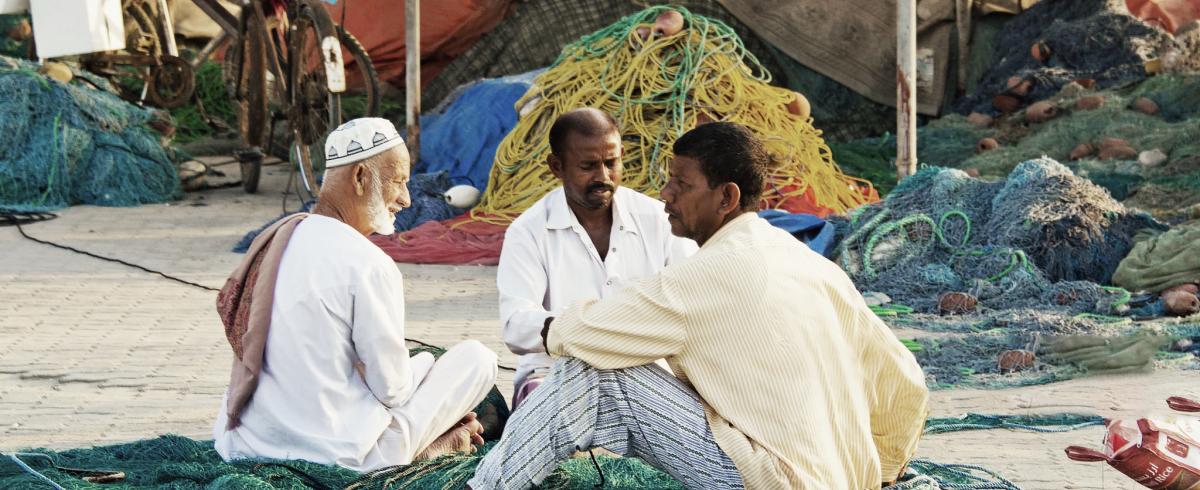
Categories to Explore
Welcome to the Resource Library. Here you will find a range of resources that you can use to support your small-scale fishery and community. Use the buttons above to browse resources by category or use the filters on the right to sort resources.
A rising tide lifts all boats
The purpose of this document is to provide an overview of an alternative approach to how we could use digital technologies in service to marine conservation outcomes in Latin America and the Caribbean.
Lessons learned and public policy recommendations on adaptation to climate change in artisanal fisheries and small-scale aquaculture in Chile [Policy brief].
This document is part of the project “Strengthening the adaptive capacity to climate change in the fisheries and aquaculture sector of Chile. This document presents the primary results and innovative aspects of the project, in keeping with its three main components: strengthening of public and private institutional capacities; improvement of the adaptive capacity of artisanal fisheries and small-scale aquaculture; and strengthening knowledge and awareness about climate change in fishing and aquaculture communities
Empowering Marginalised Actors
To empower marginalised actors to become willing and able to engage proactively with more powerful market actors.
Market System Selection - Participatory market system development in conservation
In Market System Selection, you will find guidance on how to select a single, or small number of market systems, to focus your energy on.
Small-scale fisheries and sustainable development
Key findings from the Illuminating Hidden Harvests report - This brief presents the main results from the Illuminating Hidden Harvests (IHH) report, providing new, clearer insights to support the implementation of the Voluntary Guidelines for Securing Sustainable Small-Scale Fisheries in the Context of Food Security and Poverty Eradication (SSF Guidelines) and progress toward the Sustainable Development Goals (SDGs).
Photostory: The small-scale fisheries and aquaculture sector in Asia: Small in scale, big in value
This photostory book celebrates the International Year of Artisanal Fisheries and Aquaculture 2022 (IYAFA 2022) by showing the diversity of the small-scale fisheries and aquaculture sector in Asia, as home to the majority of the world's small-scale fishers, fish farmers, and fish workers.
Women and men in small-scale fisheries and aquaculture in Asia
Fisheries and aquaculture contribute to food security and livelihoods of millions of people in Asia. Both women and men are engaged in fisheries and aquaculture. In the past ten years, many actors have worked on raising awareness on women’s contribution as well as promoting gender equality in fisheries and aquaculture. This study aims to consolidate the efforts to date to provide recommendations for action and future studies.
Small-Scale Fisheries and the Human Right to Adequate Food
This handbook has been developed to support the joint implementation of the SSF Guidelines and the Right to Food Guidelines through an integrated approach and to increase policy coherence and uptake. The document provides an overview of the contents of these voluntary guidelines and identifies potential synergies. It also explains the human rights-based approach and discusses some crucial areas, with special attention to the specific roles and responsibilities of key actors.
A policy and legal diagnostic tool for sustainable small-scale fisheries
This diagnostic tool advances the implementation of the Voluntary Guidelines for Securing Sustainable Small-Scale Fisheries in the Context of Food Security and Poverty Eradication (SSF Guidelines) through policy and legal frameworks. By using this tool, users are able to recognize the national policy and legal instruments that are relevant to small-scale fisheries in a country, consistent with the SSF Guidelines.
Ghost Gear Factsheets
Otherwise known as ‘ghost gear’, ALDFG is the most harmful form of marine debris as it is designed to last a long time. In response to a need for information on this topic, GCFI has produced new fact sheets that seek to share pertinent information about ALDFG and to promote the adoption of best management practices for preventing and reducing the impact of ALDFG.
